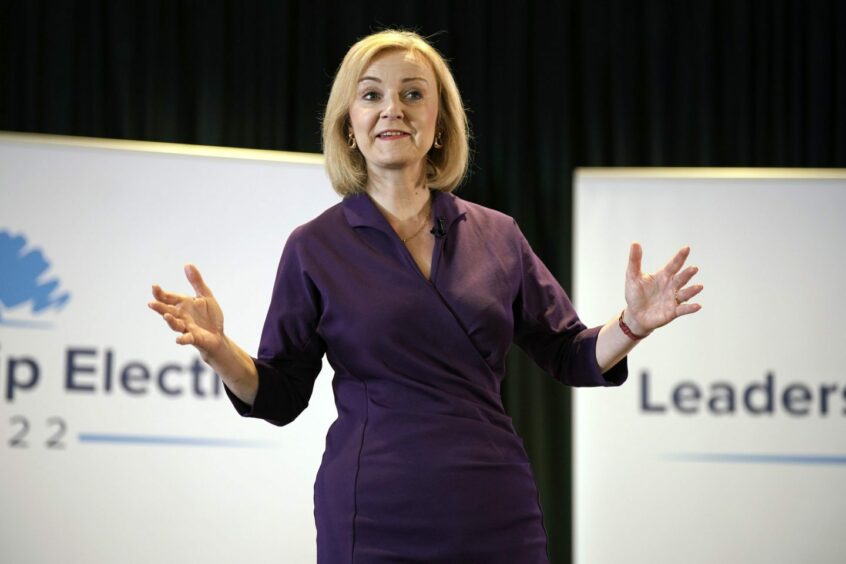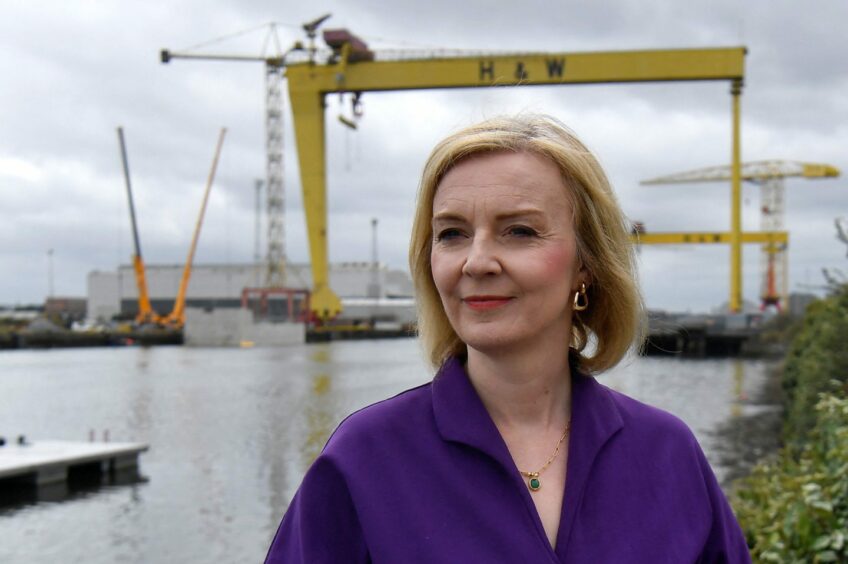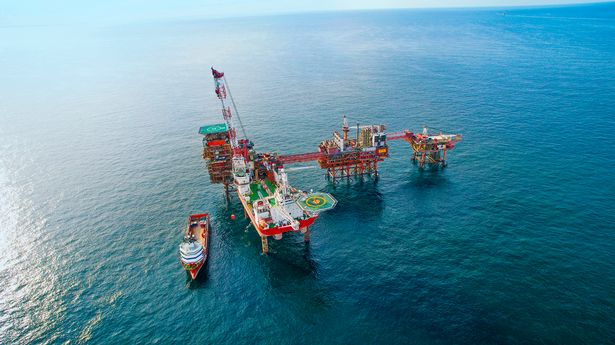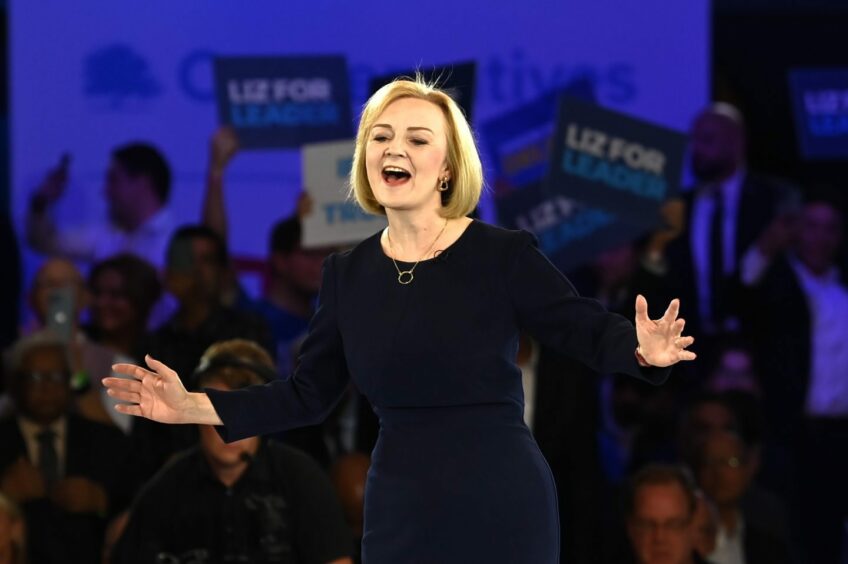
With her place as the UK’s next prime minister secure, Liz Truss will soon face a tidal wave of energy policy and security decisions likely to test her campaign promises.
In her acceptance speech on Monday afternoon, Ms Truss promised a “bold plan” to cut taxes, boost the economy and “deliver on the energy crisis, dealing with people’s energy bills but also dealing with the long-term issues we have on energy supply”.
The latter is likely to be a central challenge for her premiership, having already been a major battleground between Ms Truss and her rival Rishi Sunak during the campaign trail.
The ascendant PM has historic links to the energy sector, having worked for several years as an industrial economist for Shell after her graduation from Oxford.
However, she has also faced criticism over a perceived lack of detail on how precisely she would deal with a spiralling cost of living crisis, driven largely by rocketing household energy bills.
So what can we expect the new PM to deliver on energy policy?
North Sea oil and gas
Ms Truss has made clear her support for North Sea oil and gas. Speaking during a hustings in Perth last month, Ms Truss said the north-east’s “fantastic” oil and gas industry could be used to help resource the UK’s domestic gas supply.
She has also stated her intention to bring more North Sea gas on stream “pretty quickly”, with campaign allies recently suggesting her administration would issue up to 130 new North Sea drilling licenses as one of its first acts in government.
Meanwhile business secretary Kwasi Kwarteng and Brexit opportunities minister Jacob Rees-Mogg – both of whom are likely to find senior cabinet roles within the new government – reportedly met with oil and gas firms in recent weeks to discuss how energy supplies can be secured.
Yet Labour’s Ed Miliband raised questions over Ms Truss potential involvement in the closure of Centrica’s Rough facility, by far the UK’s largest strategic gas storage site, in 2017.
The government’s decision not to intervene was flagged at the time as a strategic oversight, while Mr Miliband called for Ms Truss to “urgently explain what her involvement was in shutting down the Rough gas storage facility and plummeting the UK into close to zero storage stocks.”
However, supporters of the new PM denied she had any involvement in the plant’s closure and that the call was Centrica’s and “not a decision for ministers”.
Onshore, Ms Truss has also vowed to end a moratorium on fracking which has been in place since 2019, which she said would unlock “huge reserves of shale gas,” (although reliable estimates of the UK’s shale gas potential are difficult to predict).
Windfall tax
Ms Truss has also been quick to reject any further windfall taxes on energy profits, in contrast with Mr Sunak, the architect of the government’s recent energy profits levy (EPL).
“One thing I absolutely don’t support is a windfall tax. It’s a Labour idea and all about bashing business and it sends the wrong message to international investors and to the public,” she told a hustings in Cheltenham.
“The energy giants, if they are in an oligopoly, should be held to account. And I will rigorously hold them to account, but the way we bandy around the word profit as if it’s dirty and evil, we shouldn’t be doing that as Conservatives.”
IR35
One early campaign pledge saw a commitment to review IR35 tax legislation, a longstanding bugbear of the energy sector, where contractor arrangements tend to be commonplace.
Speaking to the Sun, Ms Truss said: “The changes that have been made to IR35 are all about trying to treat the self-employed the same as big business.
“But the fact is, if you’re self-employed, you don’t get the same benefits as being in a big company. You don’t get paid holidays, you didn’t get those benefits. So the tax system should reflect that more.”
Seb Maley, CEO of insurance provider Qdos welcomed her appointment and pressed the need to review what he described as “short-sighted tax reforms.”
“Ms Truss has said she will review the IR35 rules, which are flawed and create big problems not just for contractors but also for the businesses engaging them. An independent review of IR35 that results in change must be prioritised – that is if the new Prime Minister genuinely wants to unlock the full potential of the flexible workforce.”
Power and renewables
Ms Truss is supportive of the government’s net zero targets and clean energy, but has said previous administrations have failed to invest sufficiently in nuclear power.
“I am very supportive of renewables, I want us to do more on hydrogen, on wind power, on solar, provided it is in the right place,” she told a BBC interview on Sunday.
“[But] we need to do both [renewables and new gas investment]. Our priority has to be energy security. I will make sure we do hit our net zero targets, but we need to do it in a way that protects energy security. And gas is a very important transition fuel – it has half the emissions of coal. It is a good fuel to use as we are transitioning to net zero.”
One early pledge also centred on removing so-called green levies on energy bills in a bid to lower household bills, though the impact of such a policy has been heavily disputed, particularly given Ms Truss’ vow to maintain a net zero agenda.
She had also pledged to deliver controversial “freeports” with special tax status in Scotland.
Next steps
With her appointment and cabinet members secured, the new government is expected to issue an “emergency mini-budget”
The Times has also reported that a plan to help deal with spiralling household energy bills is on the way that, according to Truss supporters, would rely on “some kind of artificial price cap for consumers combined with a mechanism for reimbursing suppliers”.
Yet Sarah Coles, senior personal finance analyst at Hargreaves Lansdown warned that any policy actions will have to be widespread and implemented quickly.
“Truss is putting an awful lot of faith in tax cuts to ease the pain of rising prices and then kick-start economic growth. Of course, we’ll have to see whether all that sticks when the rubber hits the road,” she noted.
“But with price rises of this scale hitting across the board, and propelling us into the biggest two-year drop in real incomes in a century, the government can’t afford to fall short when considering possible solutions.”
Recommended for you

 © PA
© PA © Centrica Storage
© Centrica Storage © Tom Bowles/Story Picture Agency/
© Tom Bowles/Story Picture Agency/